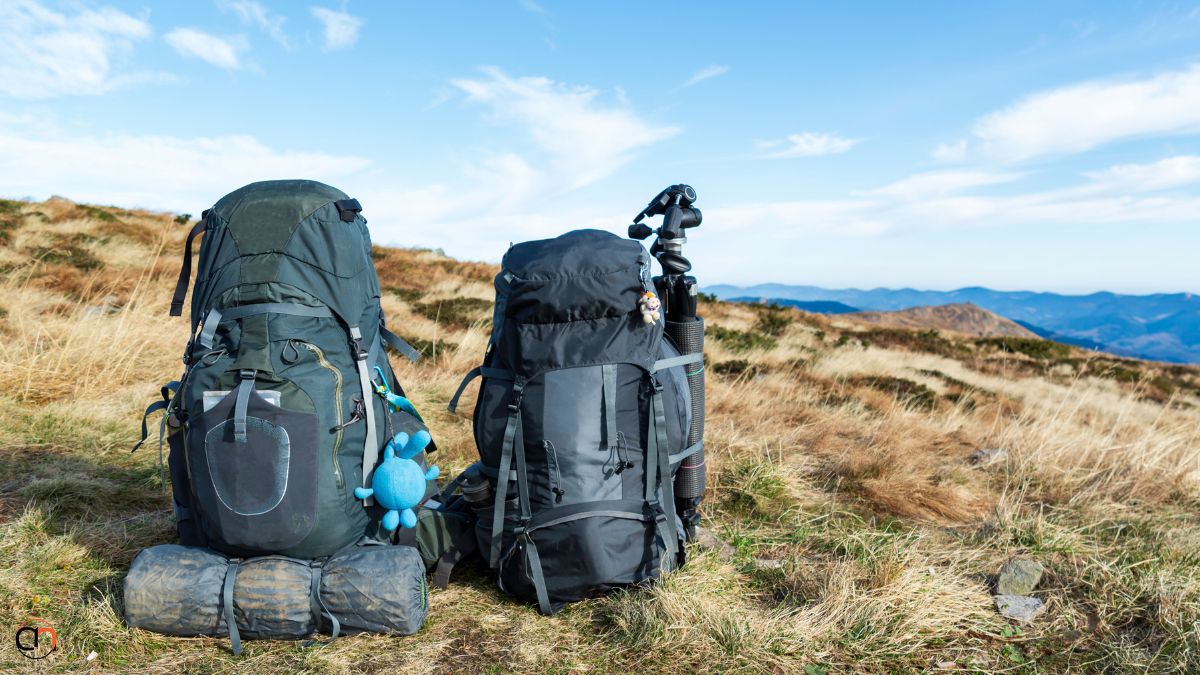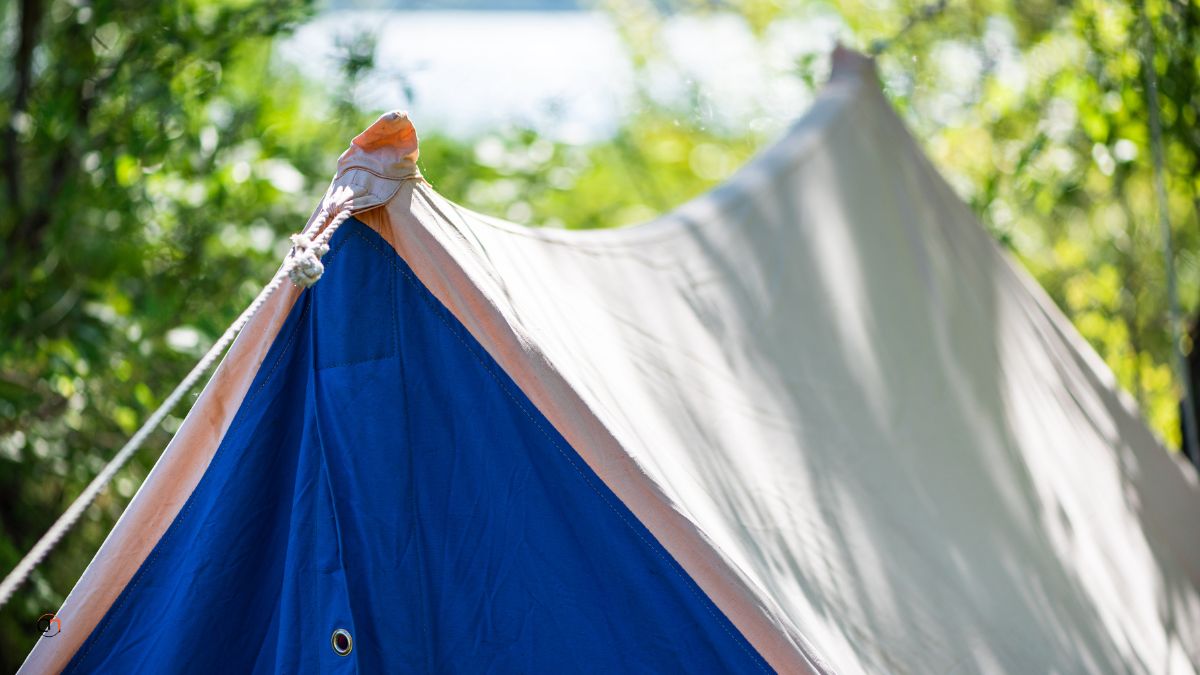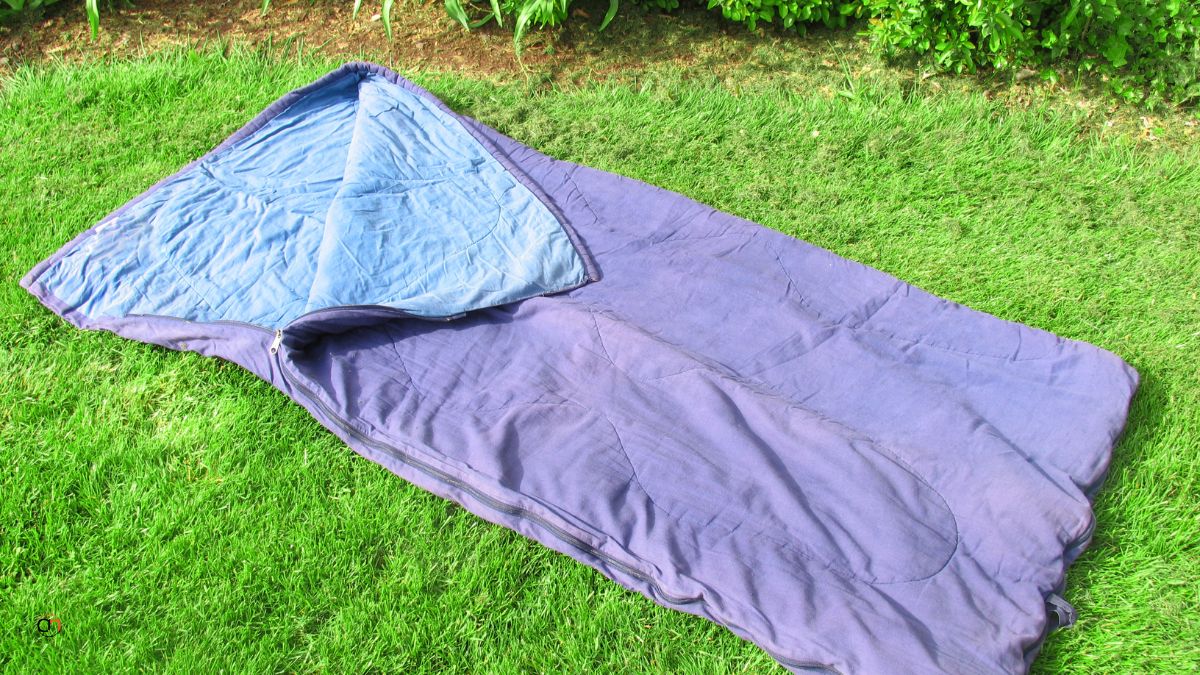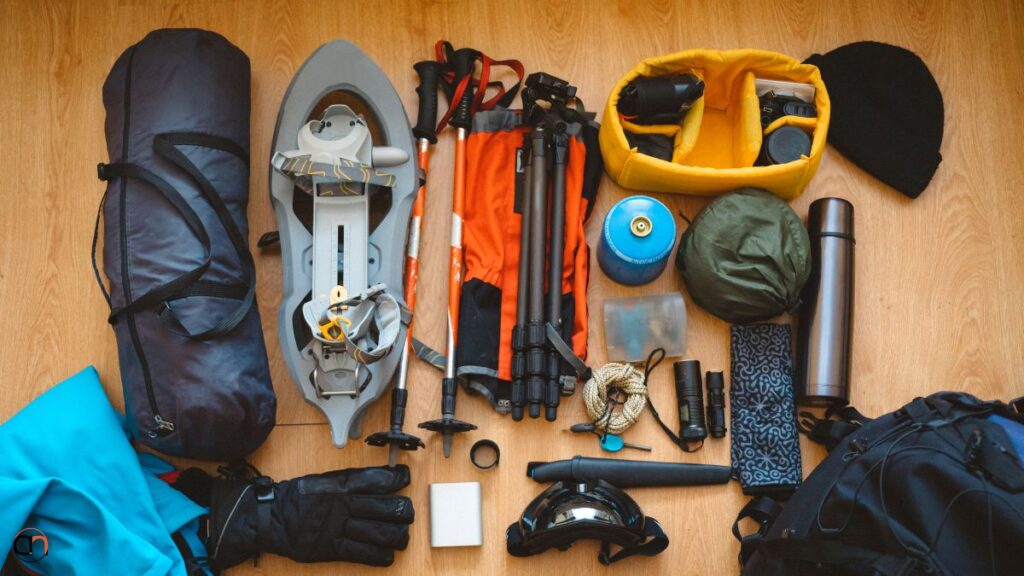Starting your first backpacking journey is an exciting and challenging adventure.
If you’re preparing for a weekend hike or a longer expedition, having the right gear is crucial for a successful and enjoyable experience. This blog serves as your comprehensive guide to selecting backpacking equipment for beginners.
From finding the ideal backpack to picking the right sleeping bag and cooking gear, we’ll cover all the basics you need to know.
Backpacking Equipment For Beginners:
Backpacking is a thrilling way to immerse yourself in nature, but it requires careful preparation and the right gear, especially for those new to the adventure. Having the proper equipment can turn your experience from challenging to enjoyable. Here’s a guide to the essential backpacking equipment for beginners should consider:
1. Backpack
TOC

Your backpack is a crucial piece of gear, and it needs to strike the right balance between comfort, capacity, and weight. A pack in the 40-60 liter range is typically ideal for beginners, offering ample space for your essentials without being overly cumbersome.
2. Tent or Shelter

A lightweight and easy-to-assemble tent is essential. If you’re backpacking solo, a one-person tent or bivy sack might suffice, but if you’re with a partner or group, a two-person tent provides more room and comfort. Make sure your shelter is durable, weather-resistant, and easy to carry.
Read More: Trekking vs Hiking Shoes Ideas
3. Sleeping Bag and Pad

Pick a camping cot that suits the environment of your objective. A three-season sleeping bag is versatile enough for most conditions. Pair it with a sleeping pad to provide insulation from the ground and enhance comfort.
4. Clothing
Proper layering is key to staying comfortable in varying weather conditions. Begin with dampness wicking base layers, add protecting layers for warmth, and finish it off with a waterproof and windproof external layer. Don’t forget a hat, gloves, and quality socks to protect your extremities.
5. Footwear
The right footwear is essential for avoiding blisters and injuries. Select hiking boots or shoes that fit well, are sturdy, and are broken in before your trip. Depending on the terrain, you might prefer boots for ankle support or lighter hiking shoes for flexibility.
6. Cooking Gear
A compact stove, fuel, and lightweight cookware are vital for meal preparation. A little butane or propane oven is helpful and solid. Include utensils, a lighter, and a pot for bubbling water and cooking. Dehydrated meals are a popular choice for their convenience and ease of packing.
7. Water Filtration
Staying hydrated is crucial, and carrying all the water you need can be impractical. A portable water filter or purification tablets enable you to safely drink from natural sources along your route.
8. Navigation Tools
Even if you’re on a well-marked trail, a map, compass, and a GPS device or smartphone with offline maps are essential for navigation and emergencies.
9. First Aid Kit
A compact first aid kit is a must-have, including bandages, antiseptic wipes, pain relievers, blister treatment, and any personal medications. Being arranged can keep minor issues from becoming serious issues.
10. Additional Essentials
Don’t overlook small but vital items like a headlamp with extra batteries, a multi-tool or knife, biodegradable soap, a trowel for digging catholes, and a bear-proof container for food if you’re in bear country.
Focus on quality and practicality, and as you gain experience, you’ll discover what works best for your needs and the environments you’ll explore. With the right stuff, you’re prepared to embrace the magnificence and difficulties of hiking.
Take away:
As you gear up for your first backpacking trip, remember that having the right equipment is essential for a safe and enjoyable experience.
Focus on the basics: a durable backpack, a dependable tent, proper clothing, and key essentials like a water filter and a first aid kit.
Using quality gear that suits your needs will pave the way for successful and memorable adventures.
As you continue your journey, you’ll fine-tune your setup and discover what works best for you. For more tips, inspiration, and gear advice, follow us on Pinterest to explore endless ideas to inspire your next adventure!
FAQs:
Q. hiking equipment list for beginners
A: Beginners should pack a sturdy backpack, reliable hiking boots, moisture-wicking clothing, a map or GPS, a first aid kit, snacks, ample water, and sun protection, including a hat, sunglasses, and sunscreen.
Q. camping equipment list for beginners
A: Essential camping gear for beginners includes a tent, sleeping bag, sleeping pad, camp stove or portable grill, cooking utensils, a lantern or headlamp, food and a cooler, and basic toiletries. Be sure to also pack extra clothing layers and a first aid kit.
Q: How do I select the right backpack for hiking?
A: Pick a climbing rucksack that accommodates your middle, offers agreeable lashes, and conveys weight equitably. A 20-30 liter pack is ideal for day hikes, while longer trips may require a 40-60 liter capacity.
Q: What type of tent is best for novice campers?
A: For beginners, a lightweight, easy-to-set-up, and weather-resistant tent is recommended. A two-person tent is a good choice, offering enough space without being too heavy. Ensure the tent has great ventilation and a rainfly for additional insurance.

Its Aliza R. Khan, a passionate travel blogger from Bangladesh. With a knack for inspecting hidden gems and sharing travel tips, I love to inspires readers to explore the world with curiosity and adventure.



